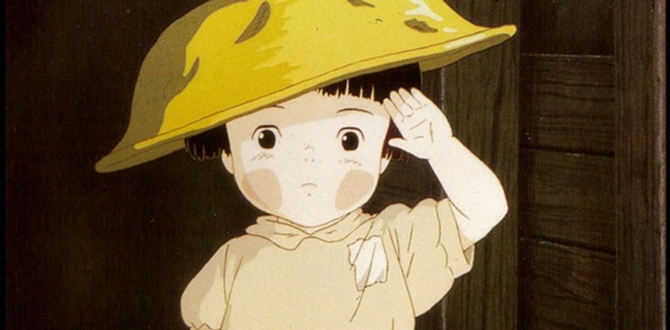Books: Grave of the Fireflies
April 6, 2021 · 0 comments
By Jonathan Clements.

Long overdue for inclusion in the BFI’s Film Classics series, Isao Takahata’s Grave of the Fireflies finally gets the critical treatment, courtesy of Alex Dudok de Wit. In 100 closely argued pages, he takes the reader through the film’s genesis at Studio Ghibli, the peculiarities of its director, its major themes and minor issues, and the long, long tail of its reception.
Dudok de Wit places Grave of the Fireflies in its multiple historical contexts – not only as a film about a time in Japanese history, but as an adaptation of Akiyuki Nosaka’s supposedly “unfilmable” memoir, made by a director who had suffered similar experiences himself in wartime Okayama, for a generation whose own understanding of the war was skewed and sanitised. Nosaka’s own comments, about the lurid lucidity of life in the face of certain death, recalls those of the dying Dennis Potter, who looked at the tree outside his window and described “the blossomest blossom.”

The author’s personal context is also worthy of note. He has animation in his blood, and not merely as a contributing editor for Cartoon Brew, at ease with terms like “eyeline match” and “neorealist”. If the name looks familiar, that’s probably because he is the son of Michael Dudok de Wit, whose animated feature The Red Turtle was Takahata’s last venture as producer. More crucially, he is also the bearer of a degree in Japanese, affording him access to reams of original-language source material, including Takahata’s own as-yet untranslated Things I Thought While Making Films.
Dudok de Wit’s account of the dual production of Grave of the Fireflies and its unlikely double-bill stable-mate, My Neighbour Totoro, draws on studio anecdotes, fights over assignment of animator talent, and budgetary crunches. Grave of the Fireflies was rushed out unfinished, with one scene still uncoloured in the initial print – such a shameful embarrassment that Takahata’s career was proclaimed over (again), until Miyazaki rescued him by promising to be the producer of his follow-up. If Miyazaki is jokingly known as the Guy Who Keeps Trying to Retire, I might suggest that Takahata is the Guy Who Keeps Getting Told “You’ll Never Work in This Town Again.”
For Dudok de Wit, the character of Seita’s final, expressionless stare out of the screen, both towards the viewer and down upon the lights of modern Kobe, is Takahata’s statement that Japan has taken a wrong turn – that these innocent victims of the 1940s have realised something in the afterlife that needs to be told to the people of the 1980s. Takahata’s actual intended “anti-war” film, Border 1939, was to have been his next, but the Manchuria-set fable was cancelled in changing political times.
This book does not merely meet the BFI Film Classic remit of “introducing, interpreting and celebrating” a worthy feature. It digs deeper into some lesser-appreciated areas of the film’s construction, including the possibility that it owes a debt to the themes and tropes of kabuki “suicide dramas”, and the psychological impact of Japan’s defeat – growing up during the Fifteen Years War, Seita has never known Japan not to be an empire. Dudok de Wit thinks that the film’s role as “a critique of Japanese society and historical memory” has been erased by the power of its anti-war message – a concept that Takahata himself refused to entertain, on the grounds that his movie wasn’t going to do anything to contribute to world peace. As the author notes in closing, Grave of the Fireflies has instead become a standard-bearer for anime about the horrors of war, against the expectations of its own modest director, a “strange failure” indeed.
Jonathan Clements is the author of Anime: A History. Alex Dudok de Wit’s BFI Film Classic on Grave of the Fireflies is published by Bloomsbury in May.
Leave a Reply